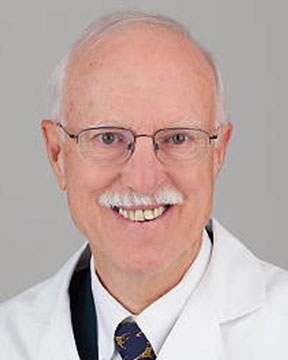 |
Richard L. GuerrantUniversity of VirginiaSustainability Lessons From Infectious Diseases And Human Behavior And Disparities On Planetary Environment And Human Survival – A Career Experience Guerrant International Symposium (2nd Intl Symp. on COVID-19/Infectious Diseases & their implications on Sustainable Development) Back to Plenary Lectures » |
Abstract:My career in science separates into two distinct halves: The first half was focused on basic mechanisms by which bacterial toxins cause diarrhea and whether those mechanisms could be used in better diagnosis and treatment. Realizing that simple salt, sugar and water ORT would be hard to beat, the second half became focused on the potentially life-long developmental and cognitive consequences of enteric infections (EE) that were not solved by simple ORT. [This was for 2 reasons: it was not caused by just acute dehydration and it was associated with gut barrier disruption and inflammation that occurred even more frequently without overt diarrhea but with widespread, previously unrecognized ‘silent’ infections with multiple pathogens (predominantly bacterial and parasitic).] I shall review first the basic science lessons I have learned from Mother Nature and second, the profound importance of understanding the threats to us all of not understanding the human ravages of disparity and inequity. These are linked in lessons for the survival of our Homo sapiens species as we know it. [They also reflect how my research career evolved from its first to its second half] Cholera & Turista re cAMP/cGMP taught Nobel laureates Gilman and Murad very different lessons; and also a potential explanation for why we have the dreaded Alzheimer’s Disease ApoE4 risk allele. Vicious cycles of poverty include three ‘new’ diseases: stunted growth, impaired cognitive development and later life metabolic diseases (HAZdrop, COGhit and METsyn). The second half moved from understanding the molecular mechanisms of cholera and E. coli toxins’ opposite effects on adenylate and guanylate cyclase respectively to both surprisingly cause severe secretory diarrhea (as with epidemic cholera and ‘Turista’), hoping to improve on ORT, to realizing the greater, lasting importance of the “environmental enteropathy” (EE) that many enteric pathogens cause with potential long-term impairment of children’s growth and even cognitive development. I will note the impact, biomarkers, mechanisms and remediation of EE. This work led to my writing about the “Evolution of Evolution: The Survival Value of Caring,” in which we can learn that evolution itself may be changing the fastest, traits that were once advantageous evolve to become disadvantageous and even threaten our survival. The imperative of bridging our science with our humanity requires nothing less than a broadening of our concept of “self,” and a “Declaration of Interdependence.” How the poorest on our planet fare is what will determine the fate of us all. Thankfully, we have experts who can address sustainability lessons from COVID-19, TB and other pandemics (with Drs. Petri and Sinha) as well as threats to us all from troubling global disparities (with Drs. Scharf and Heysell) here with us today. |
|